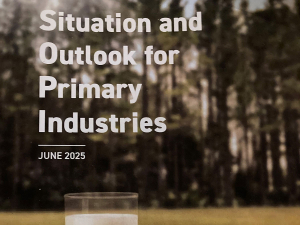NZ Catchment Groups Thrive with ‘Source to Sea’ Approach
The most successful catchment groups in NZ are those that have 'a source to sea' approach.
 The latest Situation and Outlook Report predicts export returns for the year will be close to $60 billion.
The latest Situation and Outlook Report predicts export returns for the year will be close to $60 billion.
OPINION: Good times are coming back for the primary industries. From sentiment expressed at Fieldays to the latest rural confidence survey results, all indicate farmer confidence at a near-record high.
The quarter two Rabobank Rural Confidence Survey, released last week, shows farmers across all sectors looking favourably at the 12 months ahead.
The latest Ministry for Primary Industries (MPI) Situation Outlook Report predicting. export returns for the year will be almost $60 billion – 12% up on last year – and that these will hit $65.8 billion by 2029. Leading the charge is dairy which is picked to be a record $27 billion (up 16%).
And banks, often seen in a bad light by farmers for charging high interest rates, are getting back in farmers’ good books. In a Federated Farmers survey, 61% of farmers rated their bank’s communication as good or very good – the best result since 2020.
Just on 18% of farmers said they were feeling undue bank pressure, down from 24% six months earlier and the lowest rating recorded since 2018.
Rabobank’s report shows farmer confidence in the broader agri economy was unchanged at a net reading of +44%. Alongside last quarter, this is the second-highest net reading recorded across the past decade, with only quarter two 2017 higher (at +52%).
The latest survey, completed early this month, found 48% of farmers were now expecting the performance of the broader agri economy to improve in the year ahead (down from 52% in the previous quarter).
There’s no doubt that sentiment is high among producers of all our major agri sectors. It’s largely driven by strong commodity prices – led by dairy.
However, the world markets are beyond the control of farmers. Geopolitical shocks can easily overtake the current positive.
But for now, the agri sector’s mojo is back. Let’s hope no one spoils our party.
Recent weather events in the Bay of Plenty, Gisborne/Tairawhiti, and Canterbury have been declared a medium-scale adverse event.
DairyNZ's chief executive Campbell Parker says the 2024/25 dairy season reinforces the importance of the dairy sector to New Zealand.
A New Zealand agribusiness helping to turn a long-standing animal welfare and waste issue into a high-value protein stream has won the Australian dairy sector's top innovator award.
OPINION: A bumper season all around.
Dairy Women's Network (DWN) has announced that Taranaki dairy farmer Nicola Bryant will join its Trust Board as an Associate Trustee.
Rural Women New Zealand (RWNZ) says it welcomes the release of a new report into pay equity.